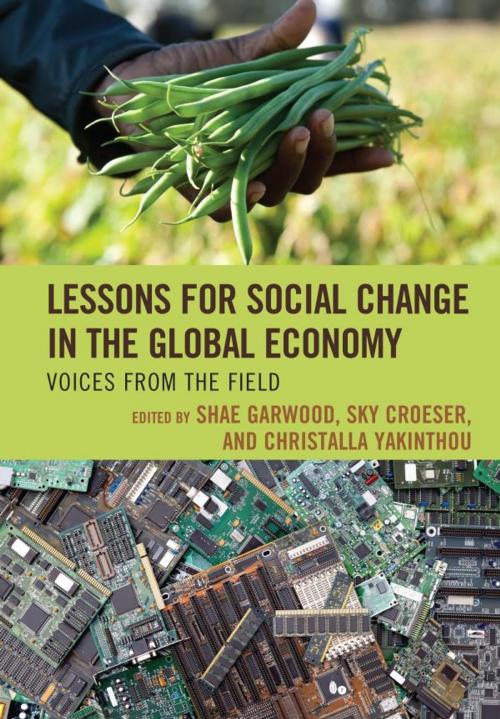Lessons for Social Change in the Global Economy
Voices from the Field
Nonfiction, Social & Cultural Studies, Political Science, Politics, Economic Policy, International, International Relations| Author: | Sanjiv Pandita, Michael Heasman, Eric Feinblatt, Kristina Areskog Bjurling, Sky Croeser, Jessica Champagne, Claire Litton-Cohn, Fahmi Panimbang, Shae Garwood, Sarah Adler-Milstein, Mark Barenberg, Bharati Chaturvedi, Theresa Haas, Ralph Early, Caroline Baillie | ISBN: | 9780739187760 |
| Publisher: | Lexington Books | Publication: | December 16, 2013 |
| Imprint: | Lexington Books | Language: | English |
| Author: | Sanjiv Pandita, Michael Heasman, Eric Feinblatt, Kristina Areskog Bjurling, Sky Croeser, Jessica Champagne, Claire Litton-Cohn, Fahmi Panimbang, Shae Garwood, Sarah Adler-Milstein, Mark Barenberg, Bharati Chaturvedi, Theresa Haas, Ralph Early, Caroline Baillie |
| ISBN: | 9780739187760 |
| Publisher: | Lexington Books |
| Publication: | December 16, 2013 |
| Imprint: | Lexington Books |
| Language: | English |
Discussion questions developed by the authors can be found here.
In the face of globalization’s massive social and economic transformations and the resulting persistent inequality, activists, labor organizers, and advocacy NGOs are seeking and creating change beyond the confines of formal state politics and across national borders. Given the breadth of local issues activists face, the ways they define the problem and seek redress vary widely. This book provides a unique perspective on these efforts, gathering into one volume concrete examples of the implementation of different strategies for social change that highlight the challenges involved. This provides useful lessons for those involved in social change, as well as for those studying it. Contributors to the volume are scholars and practitioners around the world, and they draw on strong connections with people working in the field to improve working conditions and environmental standards of global production systems. This allows readers to develop a more comprehensive and grounded understanding of strategies for social change.
This book maintains a strong balance between breadth and specificity. It provides an overview of the themes of social change, which contextualizes and draws common threads from the chapters grounded in specific geographic locations and political spaces of change. The chapters analyze environmental and social problems and the varying degrees of success activists have had in regulating industries, containing environmental hazards, and/or harnessing aspects of an industry for positive social and economic change. Contributors draw upon different ways of creating change, which include corporate social responsibility schemes, fair trade regimes, and community radio. By providing insight into the potential and limitations of actions taken at different levels, the book encourages a critical perspective on efforts for social change, grounded in an understanding of how conditions around the world can affect these activities.
Discussion questions developed by the authors can be found here.
In the face of globalization’s massive social and economic transformations and the resulting persistent inequality, activists, labor organizers, and advocacy NGOs are seeking and creating change beyond the confines of formal state politics and across national borders. Given the breadth of local issues activists face, the ways they define the problem and seek redress vary widely. This book provides a unique perspective on these efforts, gathering into one volume concrete examples of the implementation of different strategies for social change that highlight the challenges involved. This provides useful lessons for those involved in social change, as well as for those studying it. Contributors to the volume are scholars and practitioners around the world, and they draw on strong connections with people working in the field to improve working conditions and environmental standards of global production systems. This allows readers to develop a more comprehensive and grounded understanding of strategies for social change.
This book maintains a strong balance between breadth and specificity. It provides an overview of the themes of social change, which contextualizes and draws common threads from the chapters grounded in specific geographic locations and political spaces of change. The chapters analyze environmental and social problems and the varying degrees of success activists have had in regulating industries, containing environmental hazards, and/or harnessing aspects of an industry for positive social and economic change. Contributors draw upon different ways of creating change, which include corporate social responsibility schemes, fair trade regimes, and community radio. By providing insight into the potential and limitations of actions taken at different levels, the book encourages a critical perspective on efforts for social change, grounded in an understanding of how conditions around the world can affect these activities.















